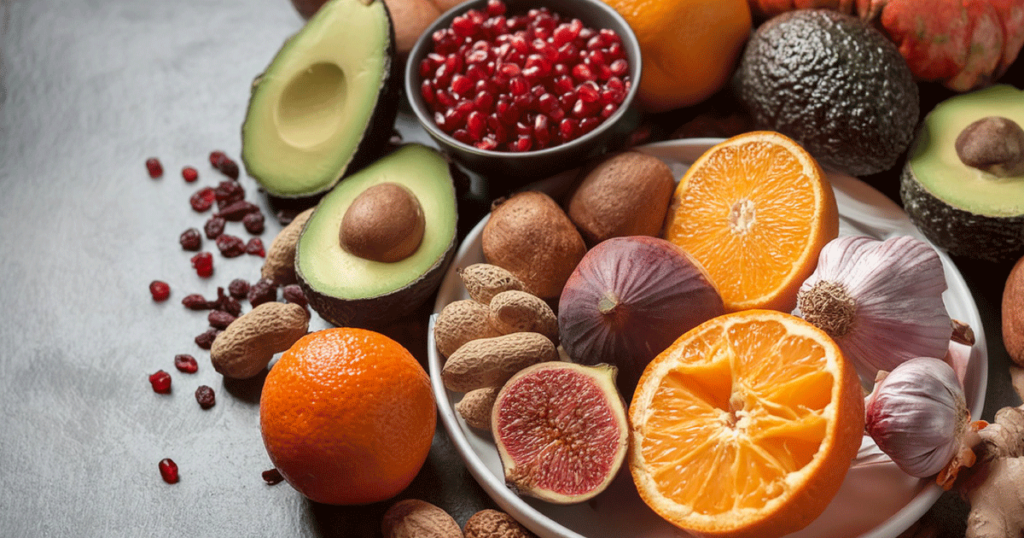Nutrition plays a powerful role throughout your cancer journey, from influencing risk to aiding in prevention, treatment, and recovery. Let’s explore how what you eat can become a powerful ally in your fight for health.
Food Choices and Cancer Risk:
- Dietary Patterns: Diets rich in fruits, vegetables, whole grains, and lean protein are linked to a lower risk of some cancers. Conversely, processed foods, red meat, and sugary drinks may increase risk.
- Nutrients and Supplements: While some vitamins and minerals may offer benefits, research on dietary supplements for cancer prevention is ongoing. Focus on a balanced diet for optimal nutrient intake.
- Healthy Weight Management: Maintaining a healthy weight can significantly lower cancer risk. Talk to your doctor about a personalized weight management plan.
Cancer-Fighting Foods on Your Plate:
Nature provides a vast arsenal of “superfoods” with potential anti-cancer properties:
- Cruciferous Vegetables: Broccoli, cauliflower, and cabbage contain sulforaphane, a compound that may inhibit tumor growth.
- Berries: Packed with antioxidants like anthocyanins, berries may protect cells from damage.
- Nuts and Seeds: Rich in healthy fats, fiber, and antioxidants, nuts and seeds may reduce cancer risk.
- Fatty Fish: Salmon, tuna, and sardines are excellent sources of omega-3 fatty acids, which may have anti-inflammatory effects.
- Plant-Based Diets: Studies suggest plant-based diets may offer some protection against certain cancers.
- Antioxidants and Phytochemicals: These natural compounds found in fruits, vegetables, and whole grains may help combat free radical damage linked to cancer.
Nourishing Your Body During Treatment:
Cancer treatments can present nutritional challenges:
- Appetite Loss: Explore smaller, more frequent meals, high-calorie, nutrient-dense snacks, and appetite stimulants recommended by your doctor.
- Taste Changes: Experiment with different flavors and textures, try using herbs and spices, and consider taste-enhancing supplements.
- Difficulty Swallowing: Opt for soft, pureed foods, thickened liquids, and consult your doctor or a speech therapist for swallowing exercises.

Post-Treatment Considerations:
The journey doesn’t end with treatment:
- Long-Term Effects: Treatment may leave lasting impacts on digestion and nutrient absorption. Your doctor can recommend dietary adjustments or supplements.
- Reduced Risk of Recurrence: A healthy diet rich in fruits, vegetables, and whole grains can help lower the risk of cancer recurrence.
A Team Approach: The Power of Collaboration:
A multidisciplinary team approach is key:
- Registered Dietitians: These specialists can create personalized nutrition plans to support your needs throughout your cancer journey.
- Oncologists and Nurses: Work with your doctor and nurses to integrate nutrition into your overall treatment plan.
By understanding the power of nutrition and working with your healthcare team, you can make informed dietary choices that empower your fight against cancer. Remember, a healthy diet is just one piece of the puzzle, but it’s a significant one. You are not alone in this journey.
